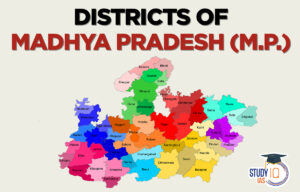Table of Contents
Citizenship Meaning
Citizenship is the connection between a person and the state. In India, there are two types of people: citizens and non-citizens (aliens). Citizens have full rights and owe loyalty to the country. Citizenship can be based on two main ideas:
- Jus soli: Citizenship is granted based on where a person is born.
- Jus sanguinis: Citizenship is granted based on ancestry or blood relations.
Since the Motilal Nehru Committee in 1928, Indian leaders favored jus soli. The idea of jus sanguinis was rejected because it didn’t align with Indian values. Citizenship laws are under the exclusive authority of Parliament and are detailed in Part 2 of the Constitution (Articles 5 to 11). These articles were enforced on November 26, 1949, when the Constitution was adopted, even though the rest of the Constitution came into effect on January 26, 1950.
Read More: Fundamental Rights of Indian Constitution
Citizenship for Indians
The Indian Constitution is federal and envisages a dual polity (Centre and states), however, it provides only for single citizenship i.e., Indian Citizenship. Indian citizens owe allegiance only to the Union. Unlike federal countries like the USA and Switzerland, there is no separate state citizenship in India. India has two kinds of citizens, friendly citizens and alien citizens. Alien citizens can be categorized as,
| Friendly Alien | Enemy Alien |
| The citizens of those nations that have friendly relations with India are friendly aliens. | The country is at war with India its citizens as enemy aliens. Compared to friendly aliens, they are granted fewer rights. |
Residents also owe duties to the Indian State, such as paying taxes, upholding the flag and national anthem, and defending the country. The Constitution only grants the following benefits and rights to Indian citizens.
Read about: Salient Features of Constitution of India
Citizenship in Indian Constitution
Citizenship is covered in Part II of the Indian Constitution. It does not, however, offer any comprehensive or robust citizenship protections or status. However, the following four groups of people became citizens of India on January 26, 1950.
| Categories of Persons | Conditions |
| Domicile of India |
|
|
Person who migrated to India from Pakistan |
|
|
Person who has migrated to Pakistan from India |
Whether before or after the Constitution’s commencement, the diplomatic or consular representation of India in the nation where he resides has registered him as a citizen of India. |
|
Overseas Indians |
He had to have lived in India for six months prior to the date of his registration application in order to qualify for this. |
Read More: Jammu and Kashmir
Citizenship Articles in Constitution of India
Article 5
| Article 5: Citizenship at the commencement of the Constitution |
This article discusses citizenship for people starting from January 26, 1950, when the Constitution began. It grants citizenship to those who:
|
Article 6
| Article 6: Citizenship of certain persons who have migrated from Pakistan |
Any person who migrated from Pakistan can be a citizen of India when the Constitution started if:
|
Read More: Constituent Assembly of India
Article 7
| Article 7: Citizenship of certain migrants to Pakistan |
| A person who left India for Pakistan after 1st March 1947, and later went back for resettlement may be able to obtain Indian citizenship. He was required to have lived in India for six months prior to the date of his registration application for this. |
Article 8
| Article 8: Citizenship of certain persons of Indian origin residing outside India |
| Individuals of Indian origin living outside India, or whose parents or grandparents were born in India, could register as Indian citizens at Indian diplomatic missions. |
Article 9
| Article 9 |
| No one who willingly accepted the citizenship of any foreign state shall be considered an Indian citizen or be considered to be an Indian. |
Article 10
| Article 10 |
| Every person who is or is regarded to be an Indian citizen must remain an Indian citizen, despite any laws passed by Parliament. |
Article 11
| Article 11: Parliament to regulate the right of citizenship by law |
| With regard to citizenship acquisition, renunciation, and any other issues related to citizenship, Parliament has the authority to adopt any provisions. In order to do this, Parliament passed the Citizenship Act of 1955, a comprehensive law governing citizenship, 1955. |
Read More: Article 370
Citizenship Acquisition Under Citizenship Act 1955
The Citizenship Act of 1955 regulates the acquisition and loss of citizenship following the Constitution’s inception. The following Acts have altered this Act numerous times; The Citizenship (Amendment) Act, 1986, The Citizenship (Amendment) Act, 1992, The Citizenship (Amendment) Act, 2003, The Citizenship (Amendment) Act, 2005, The Citizenship (Amendment) Act, 2015.
| Acquisition of Citizenship | Conditions |
| A citizen of India by Birth |
|
| A citizen of India by Descent |
|
| A citizen of India by Registration |
|
| Citizenship by Naturalisation |
|
| A citizen of India by Incorporation of a Territory |
E.g. As India acquired Pondicherry in 1962 |
The Act does not allow for dual citizenship, meaning a person can only be a citizen of India or another country, not both. Citizenship is granted based on specific conditions, such as being born in India, having Indian parents, registering, or naturalization.
The Act has been changed four times in 1986, 2003, 2005, and 2015. These changes made the rules for citizenship stricter, focusing more on where someone is from rather than just where they were born.
Important Changes
- 1986 Amendment: This change limited citizenship for those born in India. Now, only people born in India between January 26, 1950, and July 1, 1987, automatically get Indian citizenship. For those born after July 1, 1987, they can only get citizenship if at least one parent was an Indian citizen at their birth.
- 2003 Amendment: This made the rules even stricter, especially because of concerns about people coming from Bangladesh. For those born on or after December 4, 2004, both parents must be Indian citizens, or one parent must be an Indian citizen while the other cannot be an illegal migrant.
These changes mean that India has moved towards a system where citizenship is more about family ties (jus sanguinis) than just being born in the country (jus soli). Also, illegal migrants cannot claim citizenship through naturalization or registration, even if they have lived in India for seven years.
Read More: Reorganisation of States
Loss of Citizenship Under Citizenship Act 1955
By Renunciation
Loss of citizenship occurs when any citizen of India of full age and capacity makes a declaration renouncing his/her citizenship. After this declaration is registered the person ceases to be a citizen of India. Also, when a person renounces his citizenship every minor child of that person loses Indian citizenship. However, when that child reaches the age of 18, he/she can apply to resume his/her citizenship.
By Termination
If a person consciously acquires citizenship of another country, then his Indian Citizenship will be automatically terminated. The provision, nevertheless, does not apply during a war in which India is engaged.
By Deprivation
Central Government can terminate a person’s Indian citizenship under the following conditions:
- Fraud: If a person has obtained Indian citizenship through fraud.
- Disloyalty to the Constitution: Citizens have shown disloyalty to the constitution.
- Connection with the enemy: If a citizen has unlawfully traded or communicated with the enemy during a war.
- Imprisonment of Naturalised Citizen: If a person has acquired Indian citizenship through naturalisation, and within 5 years after registration or naturalisation of citizenship, has been imprisoned in any country for more than 2 years.
- Ordinary Resident: If the citizen has been ordinarily resident out of India for seven years continuously.
Read More: Preamble of Indian Constitution
The Citizenship (Amendment) Bill 2019
The Citizenship (Amendment) Bill 2019 allows six communities Hindus, Sikhs, Buddhists, Jains, Parsis, and Christians from Pakistan, Bangladesh, and Afghanistan to live in India if they entered before December 14, 2014. It reduces the time needed to apply for citizenship from 11 years to 6 years and exempts these migrants from certain laws.
However, many groups in Assam protested against this Bill, fearing it would give citizenship to illegal Bangladeshi Hindu migrants. Supporters argue that Hindus and Buddhists face religious persecution in Bangladesh, while Muslims are the majority there and do not face the same issues.
Citizenship Rights in India
There are various rights provided to Indian Citizens in the Constitution of India:
| Articles | Explanations |
| Article 15 | Citizens of India have the Right against discrimination on grounds of religion, race, caste, sex or place of birth. |
| Article 16 | Citizens of India’s Right to equality of opportunity in the matter of public employment. |
| Article 19 | Citizens of India Right to freedom of speech and expression, assembly, association, movement, residence and profession. |
| Articles 29 – 30 | Citizens have Cultural rights and educational rights |
| Right to Vote | In the Lok Sabha and state legislative assembly elections. |
| Right to Contest Election | For the membership of the Parliament and the state legislature. |
Note: In the USA only a citizen by birth is deemed to be eligible for being elected as the President of the USA, whereas in India both the citizen by birth or by naturalisation can contest for the election of the President or any other public posts.
Read More: Important Articles of Indian Constitution


 Consolidated Fund of India, Meaning and ...
Consolidated Fund of India, Meaning and ...
 Districts of MP List, Name, Importance, ...
Districts of MP List, Name, Importance, ...
 Admiralty (Jurisdiction and Settlement o...
Admiralty (Jurisdiction and Settlement o...





















